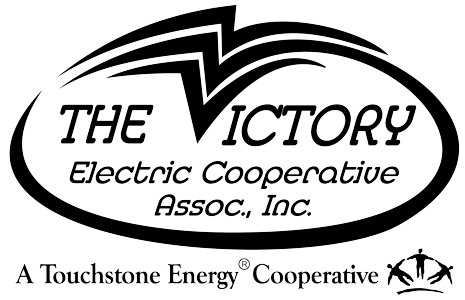NASA was an early adopter of solar technology, harnessing the sun’s energy to power spacecraft. The Vanguard 1, launched in 1958, used solar panels as a secondary power source. Today, the International Space Station’s solar array wings contain 262,400 solar cells. Solar energy is a must when you are almost 250 miles above any gas stations or electric outlets!
Engineers continue to make advances in solar cell technology for the benefit of astronauts — and those of us here on Earth. According to the U.S. Department of Energy (DOE), solar energy is “the fastest growing and most affordable source of new electricity in America.” Solar power is also one of the diverse energy sources that Victory Electric and other rural electric cooperatives rely on to provide safe, affordable, reliable energy to their members.
As interest in rooftop residential solar systems increases, Victory Electric wants to partner with members who are interested in going solar, answer questions and provide reliable resources that will help them make informed decisions.
How does a rooftop solar system work?
Photovoltaic (PV) cells are the basic unit of a solar panel, and they convert sunlight to electricity. Sunlight hits solar panels and generates a direct current. The direct current flows to an inverter that converts it to alternating current, which then flows to the home’s breaker box and is used to power appliances and electrical devices in the home. If the PV system generates more electricity than a home needs, the unused electricity is sent to the electric grid in a process known as Net Metering.
Where do I start?
Do your research before you make any decisions. Start by talking to Victory Electric so we can explain the interconnection application process and Net Metering terms.
Victory Electric wants to help you navigate the process of going solar and provide you with accurate information about your electric usage history and our rates and policies.
Make your home as energy efficient as possible. Energy-efficient homes require less electricity in general and can save you money now and in the long term. If you decide to go solar, already having an energy-efficient home might enable you to buy a smaller PV system to meet your power needs.
Have your roof inspected and make sure it is in good condition and can support solar panels, and complete any necessary roof repair or replacement before you install a PV system. A south-facing roof in an unshaded area is ideal for solar panel placement.
How much does going solar cost?
The cost of installing a PV system varies depending on multiple factors, but it can be from $10,000 to $30,000 before rebates and tax credits. The solar payback period or return on investment also varies but may take up to 10 years or more. Federal and state tax credits are available if you own your solar system. If you lease solar panels, you generally are not eligible for tax credits, but other incentives may be available.
Will solar completely eliminate my monthly electric bill?
The amount of energy that residential rooftop systems can generate depends on the location, orientation, amount of shade and size of your system. In most cases, installing a solar system will not eliminate your electric bill. If your residential solar system is connected to the electric grid through Victory Electric or another electric utility, a monthly service availability charge still applies. This covers fixed costs associated with maintaining the electric grid and providing power to draw from when a member’s electricity usage exceeds their solar system’s power generation. Autonomous or hybrid PV systems do not connect to the electric grid, but they are generally more expensive to purchase and maintain because they require a battery bank or other storage system.
How do I avoid scams?
If a salesman tries to pressure you into signing a contract or any other paperwork on the spot, that’s a red flag. Unfortunately, some residential solar companies have been investigated and/or sued by state attorneys general because of consumer complaints about aggressive sales tactics, false promises and installation problems. Take the time to contact Victory Electric first, thoroughly research solar options, compare quotes from several different companies, and verify the licensing and reputation of the contractors who will be doing the installation work. Check reviews and recommendations from other customers. Be wary of claims that solar panels are “free.” Ask questions and make sure you understand warranties and terms before you sign any contracts.
Where can I learn more?
These are only a few questions to consider before making the decision to go solar. Visit victoryelectric.net/solar or touchstoneenergy.com/technology for fact sheets about solar, questions to ask contractors and steps to take before installing a solar system. The DOE also offers the “Homeowner’s Guide to Going Solar” at energy.gov/eere/solar/homeowners-guide-going-solar in English and Spanish.
Contact our solar experts at 620-227-2139 or askkeyaccounts@victoryelectric.net for more information. Watch for an announcement soon about an upcoming community solar project. If you have a question about energy that you would like to see covered in The Victory Current, please send it to askcommunications@victoryelectric.net.
